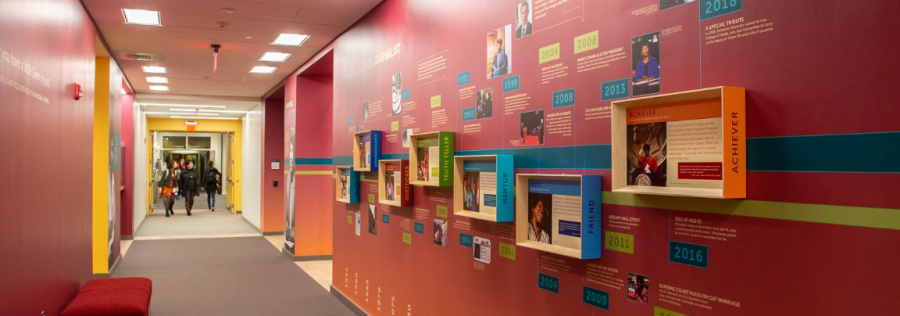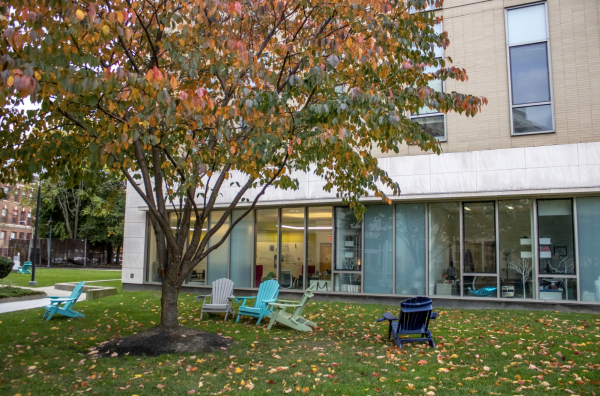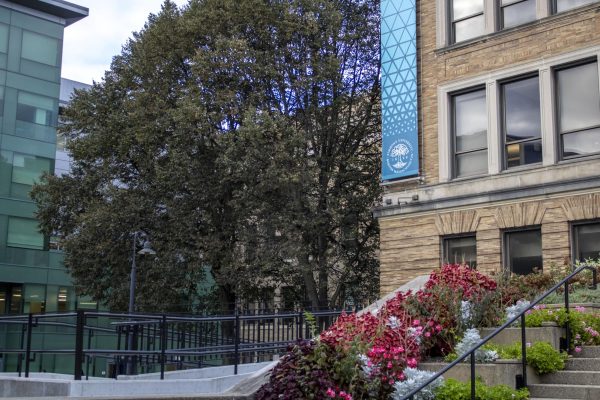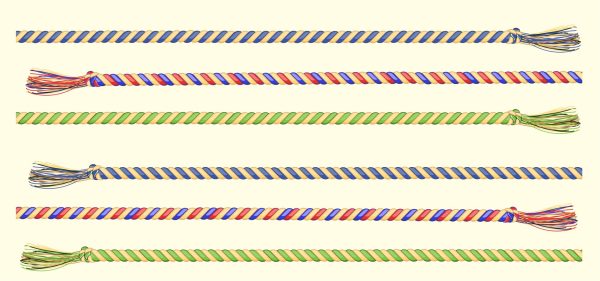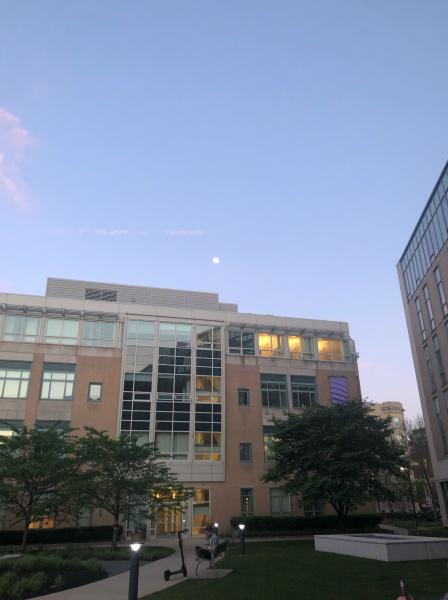Are The Titans of Higher Education Being Replaced?
April 22, 2019
Rumors that core liberal arts departments are facing elimination, are just that, rumors, said Brian Norman, dean of the Ifill College of Media, Arts and Humanities.
Norman said that he wants to keep departments healthy and adjust the curriculum so it will interest students and keep Simmons alive for another 100 years: “Disciplines and curriculum
evolve over time. At the best institutions, faculty are constantly asking themselves about the
future of their department and disciplines. I think that is a good and healthy thing.”
However, some recent actions by the college prompted these rumors to circulate. The first was the formation of a task force that would discuss structural changes in Ifill College. Norman explained that because he was not an internal hire, he created the task force to get faculty input on the structure.
“I am asking structural questions, in Ifill College, in light of the University wide academic redesign created for interdisciplinary colleges. The faculty task force is doing some very careful thinking to provide me with recommendations of pros and cons of different structural models.”
He said the structural questions are different from curricular questions. Curriculum is not being looked at besides program reviews; this would mean that curriculum would not be cut, but degree requirements will be looked at.
Professor Diane Grossman, who teaches philosophy and is a member of the task force
said, “The dean made a decision to wait a year to decide what he needed in terms of
organizational structure. He is asking us to look at the structure and figure out what we might do more efficiently.”
She stated that there were no intentions of eliminating any departments. These statements are overshadowed though by the recent cutting of courses with enrollment of less than ten students. These cuts are unique to humanities based programs; STEM courses such as nursing and biology tend to have class sizes around 40 students. While not happening to Simmons, trends across the country have shown that the liberal arts are on uncertain ground.
Liberal arts programs are being cut because of the decline in enrollment numbers. According to a report by the Atlantic, the number of English majors have declined by about 50 percent from their height in the 1990s. History has fallen by 45 percent.
“I’m really interested in all the courses that we offer in history, it’s kinda why I’m here,” stated first-year history major, Maddie Short, “I remember looking at the course catalog when I was deciding whether or not to commit and then I saw the Simmons history page and that was what I wanted. What we have is what I want to be able to do.”
Although she loves the small class sizes, it signals that interest is declining, which is making the major vulnerable.
In an effort to attract more students, the Boston Globe reports that Colby Sawyer eliminated their philosophy and English majors in favor of business and nursing.
“It’s true that there is an uptick especially in New England of liberal arts oriented, small private colleges that are struggling and some of them have closed. I think that’s on everyone’s mind,” said Norman.
This ‘uptick’ includes 11 closings just last year. Local New England colleges such as Mount Ida, Burlington, Dowling, Newbury, Green Mountain, Southern Vermont, and St. Joseph, are among those that have been forced to close due to lack of funding.
The Globe found that colleges such as these get 70 percent of their revenue through tuition while Harvard only gets 21 percent. These numbers are startling compared to their small student bodies; they simply do not have the funding to stay alive. And even closer to home, Simmons’ neighbor Wheelock College, a school focused on education and the humanities, was forced to merge with BU.
Across the US, other institutions have taken action. Kean University, University of Northern Texas, Goucher College are among the schools that have downgraded their liberal arts programs from specific disciplines to only humanities degrees and simple English requirements.
University of Wisconsin has gone so far as eliminating more than 10 humanities based programs
ranging from English to Political Science. People with humanities degrees are seen as less likely to get a good-paying career. As a result, the programs are suffering.
“Our students who graduate from the humanities are getting good jobs. The latest research shows that employers really want employees to have certain skills that you learn in the humanities,” stated Grossman. She listed critical thinking, adaptability and writing as desirable qualities.
Norman agreed with this sentiment and explained that although humanities degrees lead to careers that are a little more winding, they are just as applicable and important.
“I think there is a perception of humanities not being as specialized or not being as content driven,” stated Kayla Safford, a freshman education major. Her future salary may not make as much as someone in STEM, but Stafford feels that her dream to be a teacher shouldn’t be valued less.
Norman’s stance was clear,“In contemporary America, in the higher educational landscape, we no longer have the luxury of people assuming the value of the deep inquiry in the arts, media and humanities and I feel responsible to help show that deep study of the liberal arts prepares lives for success.”



